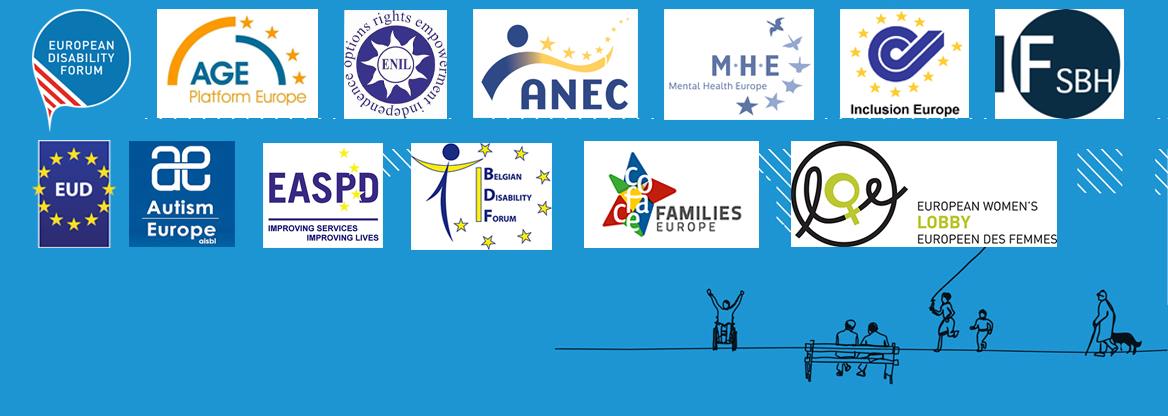JOINT PRESS RELEASE
Brussels, 06 March 2017

Accessibility? Act!
Monday 6 March 2017 | Today we are demonstrating in front of the European Parliament and we are calling on Parliamentarians to promote a strong and effective European Accessibility Act.
Millions of people in Europe are still excluded from using basic products and services that are taken for granted for other people. Due to lack of accessibility, withdrawing money from a cash machine, entering a bank or any public building, using the metro, issuing a ticket, using a computer, calling a friend, watching TV, staying in a hotel, using a washing machine, are impossible for many people, including persons with disabilities and older people.
The European Parliament is currently discussing the European Commission’s proposal for the European Accessibility Act. This is a proposal for a law that could make several products and services in the European Union accessible for all citizens including 80 million persons with disabilities and 190 million people aged 50 and older. The Accessibility Act provides the opportunity to harmonise the accessibility obligations and requirements for products and services within the European Union’s internal market, reducing barriers and reducing costs for persons with disabilities, older people and all citizens.
The demonstration takes place because of our deep concern about the recently published draft report of the Committee on Internal Market and Consumer Protection (IMCO Committee), which is the responsible Committee for the European Accessibility Act in the European Parliament. The Committee’s report is watering down the proposal for the Act to such an extent that fundamentally important parts of the Act may be lost.
The aim of today’s demonstration is to call on the IMCO Committee and the European Parliament to adopt a stronger and more ambitious position on the Accessibility Act.
Among others, we are calling on the European Parliament:
- to broaden the scope of the proposal by including the built environment and key products and services, such as household appliances and hotels;
- to make sure there is a comprehensive set of accessibility requirements in the Act;
- to ensure that the Accessibility Act has a strong relation with other legislation of the European Union, such as the Public Procurement Directive;
- to not exclude micro, small and medium-sized enterprises (SMEs) from applying the requirements of the Act;
- to ensure a robust enforcement mechanism.
The European Union and almost all of its Member States –except Ireland- have ratified the United Nations Convention on the Rights of Persons with Disabilities (UN CRPD). Thus, they are obliged under article 9 of the CRPD to deliver accessible products and services to all their citizens.
The President of the European Disability Forum, Yannis Vardakastanis, stated: “Accessibility is a prerequisite to live independently and be included in society. We are calling on the European Parliament to keep its role as the front runner for the rights of its citizens and support a strong and ambitious Accessibility Act that will bring a real change in the lives of all people in Europe.”
“The Accessibility Act is a key instrument for promoting age-friendly environments and addressing Europe’s demographic ageing in a sustainable and effective way” , pointed out Anne-Sophie Parent, AGE Secretary General, “AGE Platform Europe and its members are calling on the European Parliament not to miss this timely opportunity to further advance towards a truly inclusive European Union. The EU is turning 60, high time to think about accessibility!”






